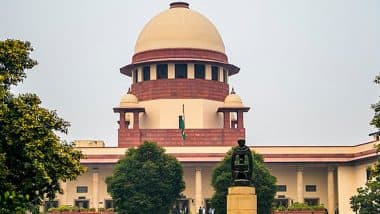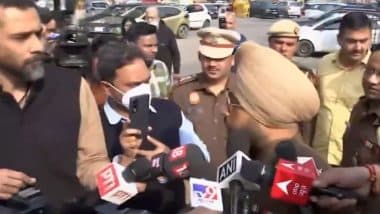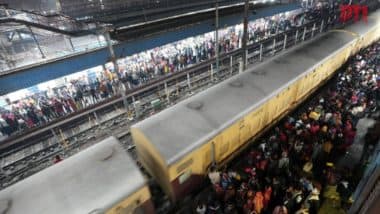New Delhi, September 5: The Supreme Court on Thursday commenced hearing on Delhi Chief Minister Arvind Kejriwal's pleas seeking bail and challenging his arrest by the CBI in the alleged excise policy scam. Senior advocate Abhishek Singhvi, appearing for the chief minister, told a bench of Justices Surya Kant and Ujjal Bhuyan that Kejriwal was not named in the CBI FIR and moreover, he is not a “flight risk”.
Singhvi said the top court, while granting interim bail in the money laundering case, had said the chief minister was not a threat to society. “What started in August, 2023 has led to arrest in March this year in the money laundering case,” he said, adding the top court and a trial court have already granted him bail. The hearing is underway. The top court had on August 23 allowed the CBI to file its counter affidavit in the matter and gave two days to Kejriwal to file a rejoinder. Arvind Kejriwal’s Bail Plea: Supreme Court To Decide on Delhi CM’s Bail Today in Excise Liquor Scam Case.
Kejriwal has filed two separate petitions challenging the denial of bail and against his arrest by the CBI in the case. He has challenged the August 5 order of the Delhi High Court upholding his arrest. The AAP chief was arrested by the CBI on June 26. On August 14, the top court refused to grant interim bail to Kejriwal in the case and sought a response from the probe agency on his plea challenging his arrest. The Delhi High Court had on August 5 upheld the arrest of the chief minister as legal, and said there was no malice in the acts done by the CBI which was able to demonstrate how the AAP supremo could influence witnesses who could muster the courage to depose only after his arrest. Delhi Excise Policy Case: Supreme Court To Hear CM Arvind Kejriwal’s Plea Seeking Bail, Challenging CBI Arrest on September 5.
The high court had asked him to move the trial court for regular bail in the CBI case. The excise policy was scrapped in 2022 after the Delhi lieutenant governor ordered a CBI probe into alleged irregularities and corruption involving its formulation and execution. According to the CBI and the ED, irregularities were committed while modifying the excise policy and undue favours extended to licence holders.













 Quickly
Quickly




















